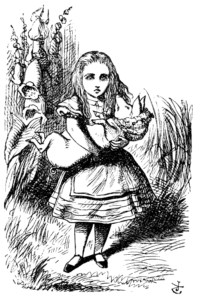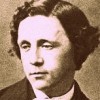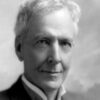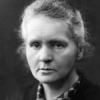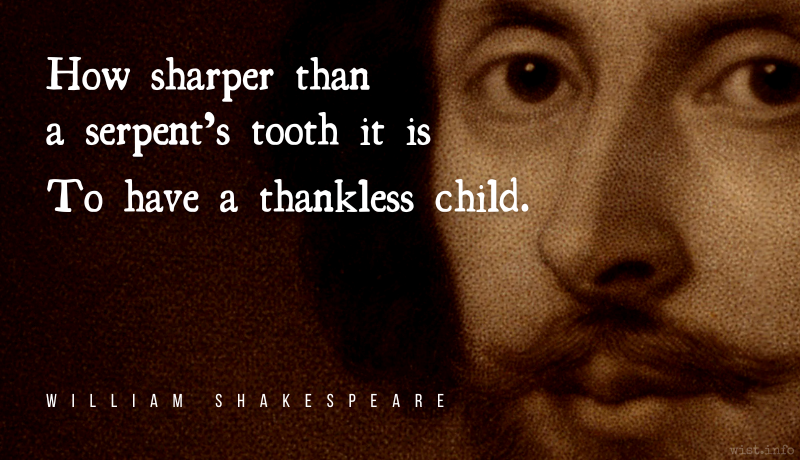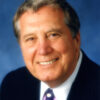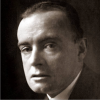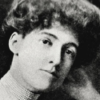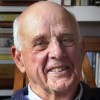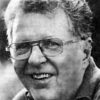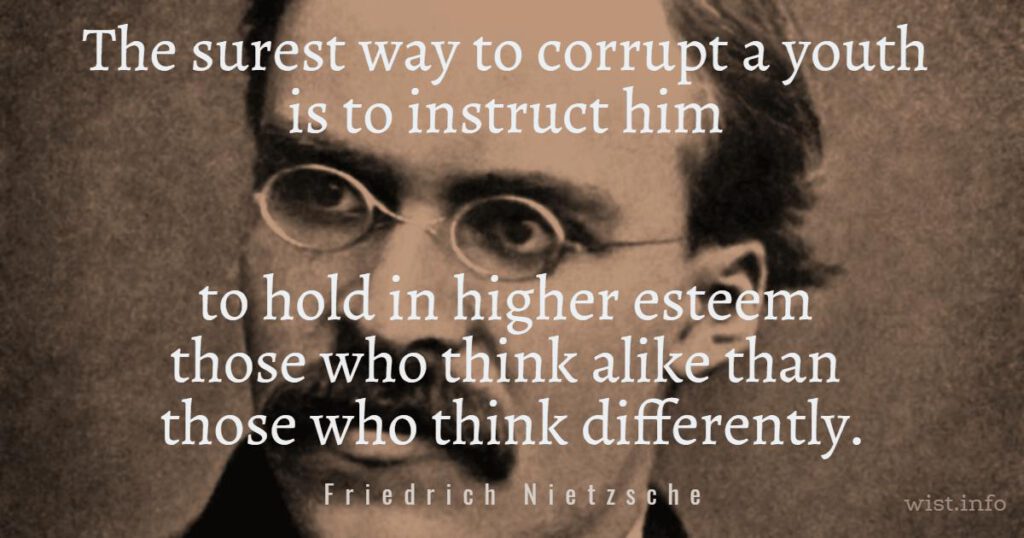“If it had grown up,” she said to herself, “it would have made a dreadfully ugly child: but it makes rather a handsome pig, I think.” And she began thinking over other children she knew, who might do very well as pigs.
Lewis Carroll (1832-1898) English writer and mathematician [pseud. of Rev. Charles Lutwidge Dodgson]
Alice’s Adventures in Wonderland, ch. 6 “Pig and Pepper” [Alice] (1865)
(Source)
Quotations about:
child
Note not all quotations have been tagged, so Search may find additional quotes on this topic.
Life is a flame that is always burning itself out; but it catches fire again every time a child is born.
George Bernard Shaw (1856-1950) British playwright and critic
“The Adventures of the Black Girl in Her Search for God,” Short Stories, Scraps, and Shavings (1932)
(Source)
I don’t think he had known much demonstrative love in his childhood and what a child doesn’t receive he can seldom later give.
P. D. James (1920-2014) British mystery writer [Phyllis Dorothy James White]
Time To Be in Earnest: A Fragment of Autobiography, “Diary 1997” (1999)
(Source)
Writing of her father. Often just the last half of this quote is given ("What a child ...").
A toddling little girl is a centre of common feeling which makes the most dissimilar people understand each other.
George Eliot (1819-1880) English novelist [pseud. of Mary Ann Evans]
Scenes of Clerical Life, “Janet’s Repentance,” ch. 8 (1857)
(Source)
Do not, on a rainy day, ask your child what he feels like doing, because I assure you that what he feels like doing, you won’t feel like watching.
Misbehavior and punishment are not opposites that cancel each other; on the contrary, they breed and reinforce each other. Punishment does not deter misconduct. It makes the offender more skillful in escaping detection. When children are punished they resolve to be more careful, not more obedient or responsible.
Haim Ginott (1922-1973) Israeli-American school teacher, child psychologist, psychotherapist [b. Haim Ginzburg]
Between Parent and Child: Revised and Updated Edition, ch. 5 “Discipline” (2003 ed.) [with A. Ginott and H. W. Goddard]
(Source)
Only if a child feels right can he think right.
Haim Ginott (1922-1973) Israeli-American school teacher, child psychologist, psychotherapist [b. Haim Ginzburg]
Teacher and Child, ch. 4 “Congruent Communication” (1972)
(Source)
Children aren’t coloring books. You don’t get to fill them with your favorite colors.
Khaled Hosseini (b. 1965) Afghan-American novelist, physician [ خالد حسینی]
The Kite Runner, ch. 3 [Rahim Khan] (2003)
(Source)
I have come to the frightening conclusion that I am the decisive element in the classroom. It is my personal approach that creates the climate. It is my daily mood that makes the weather. As a teacher, I possess a tremendous power to make a child’s life miserable or joyous. I can be a tool of torture or an instrument of inspiration. I can humiliate or humor, hurt or heal. In all situations, it is my response that decides whether a crisis will be escalated or de-escalated, a child humanized or de-humanized.
Haim Ginott (1922-1973) Israeli-American school teacher, child psychologist, psychotherapist [b. Haim Ginzburg]
Teacher and Child, Preface (1972)
(Source)
Quoting his writing as a young teacher.
There was a little girl,
Who had a little curl,
Right in the middle of her forehead.
When she was good,
She was very good indeed,
But when she was bad she was horrid.Henry Wadsworth Longfellow (1807-1882) American poet
“There Was a Little Girl,” st. 1 (c. 1850)
(Source)
Often printed with "She was very, very good" for the penultimate line, and sometimes with "And when she was bad" (e.g.).
His son, Ernest, says that Longfellow composed the rhyme while walking back and forth with his infant second daughter (Alice Mary, b. 1850). There is some dispute about this, as well as his authorship of the other stanzas of the poem.
Every child should have mud pies, grasshoppers, water-bugs, tadpoles, frogs, mud-turtles, elderberries, wild strawberries, acorns, chestnuts, trees to climb, brooks to wade in, water-lilies, woodchucks, bats, bees, butterflies, various animals to pet, hay-fields, pine-cones, rocks to roll, sand, snakes, huckleberries and hornets and any child who has been deprived of these has been deprived of the best part of his education.
Luther Burbank (1849-1926) American horticulturist
The Training of the Human Plant, ch. 10 “Character” (1907)
(Source)
Who does not take pleasure in childish toys?
[τίς δ᾽ οὐχὶ χαίρει νηπίοις ἀθύρμασιν]
Euripides (485?-406? BC) Greek tragic dramatist
Auge [Αὐγῃ], fr. 272 [Heracles] (c. 408 BC) [tr. Collard/Cropp (2008)]
(Source)
Nauck frag. 272, Barnes frag. 20, Musgrave frag. 5. (Source (Greek)). Alternate translations:
Who is not pleas'd with children's harmless sports?
[tr. Wodhall (1809)]
Who does not find delight in childish amusements?
[Source]
All my life through, the new sights of Nature made me rejoice like a child.
Marie Curie (1867-1934) Polish-French physicist and chemist [b. Maria Salomea Skłodowska]
Pierre Curie, “Autobiographical Notes: Marie Curie,” ch. 1 (1923) [tr. Kellogg/Kellogg]
(Source)
The root of human virtue seldom bears
Like branches; and the Giver wills it so,
That men may know it is His gift, not theirs.
[Rade volte risurge per li rami
l’umana probitate; e questo vole
quei che la dà, perché da lui si chiami.]Dante Alighieri (1265-1321) Italian poet
The Divine Comedy [Divina Commedia], Book 2 “Purgatorio,” Canto 7, l. 121ff (7.121-123) (1314) [tr. Sayers (1955)]
(Source)
Dante noting that the sons of great kings rarely measure up to their fathers, a reminder from God that those who would be great must seek His blessing, not rely on their heritage.
(Source (Italian)). Alternate translations:
Rarely into the branches of the tree
Doth human worth mount up; and so ordains
He who bestows it, that as his free gift
It may be call’d.
[tr. Cary (1814)]
Rarely shoots merit up into the boughs,
Or human worth; and such the will of Him,
That from the Donor they should seem to come.
[tr. Bannerman (1850)]
Not oftentimes upriseth through the branches
The probity of man; and this He wills
Who gives it, so that we may ask of Him.
[tr. Longfellow (1867)]
Seldom rises human goodness through the branches; and this wills He who gives it in order that from Him it may be claimed.
[tr. Butler (1885)]
But rarely in the branch again is grown
Our human excellence, so willeth He
Who gives it, that the boon be called His own.
[tr. Minchin (1885)]
Rarely doth human goodness rise through the branches, and this He wills who gives it, in order that it may be asked from Him.
[tr. Norton (1892)]
Rarely doth human probity rise through the sons branches:
and this he wills who giveth it,
so that it may be prayed for from him.
[tr. Okey (1901)]
Rarely does human worth rise through the branches, and this He wills who gives it, that it may be sought from Him.
[tr. Sinclair (1939)]
Full seldom human virtue rises through
The branches; and the Giver wills it so,
That they to him for such a gift may sue.
[tr. Binyon (1943)]
Rare is the tree that lifts to every limb
the sap of merit -- He who gives, so wills
that men may learn to beg their best from Him.
[tr. Ciardi (1961)]
Rarely does human worth rise through the branches, and this He wills who gives it, in order that it may be asked from Him.
[tr. Singleton (1973)]
Not often does the sap of virtue rise
to all the branches. This is His own gift,
and we can only beg that He bestow it.
[tr. Musa (1981)]
Rarely does human worth rise through the branches;
That is the will of him whose gift it is,
So that it should be matter for petition.
[tr. Sisson (1981)]
How seldom human worth ascends from branch to branch,
and this is willed by Him who grants that gift,
that one may pray to Him for it!
[tr. Mandelbaum (1982)]
Seldom does human probity rise up through the branches, and this is willed by him who gives it, that it may be attributed to him.
[tr. Durling (2003)]
Human worth rarely increases through its branches: and this He wills who creates it, so that it may be asked for of him.
[tr. Kline (2002)]
It seldom happens that man’s probity
will rise through every branch. He wills it thus,
so, given from beyond, it’s known as His.
[tr. Kirkpatrick (2007)]
Rarely does human worth rise through the branches.
And this He wills who gives it,
so that it shall be sought from Him.
[tr. Hollander/Hollander (2007)]
Goodness rarely flows to the spreading branches
Of a family tree, for God who gives it decrees
That since the gift is His, humans must ask it.
[tr. Raffel (2010)]
Child, your first birthday presents will come from nature’s wild —
Small presents: earth will shower you with romping ivy, foxgloves,
Bouquets of gipsy lilies and sweetly-smiling acanthus.[At tibi prima, puer, nullo munuscula cultu
errantis hederas passim cum baccare tellus
20mixtaque ridenti colocasia fundet acantho.]Virgil (70-19 BC) Roman poet [b. Publius Vergilius Maro; also Vergil]
Eclogues [Eclogae, Bucolics, Pastorals], No. 4 “Pollio,” l. 18ff (4.18-20) (42-38 BC) [tr. Day Lewis (1963)]
(Source)
Celebrating the birth of Saloninus, a boy born in the consulship of his father and Virgil's patron C. Asinius Pollio. Or, possibly, writing of Marcellus, son of Augustus. Or maybe just a lot of veiled references to Augustus himself. Or, say some, divine prophecy of the future Jesus Christ. Lots of theories; some summaries here and here.
(Source (Latin)). Alternate translations:
Which shall to thee (sweet childe) undrest, bring forth,
Berries, wilde Ivie, and shall pay first fruits
Of mixt Acanthus, with Egyptian roots.
[tr. Ogilby (1649)]
Unbidden Earth shall wreathing Ivy bring,
And fragrant Herbs (the promises of Spring)
As her first Off'rings to her Infant King.
[tr. Dryden (1709), l. 22ff]
Gladly to thee its natal gifts the field,
Till'd by no human hand, bright Boy, shall yield;
The baccar's stem with curling ivy twine.
And colocasia and acanthus join.
[tr. Wrangham (1830)]
Meanwhile the earth, O boy, as her first offerings, shall pour thee forth every where, without culture, creeping ivy with lady's glove, and Egyptian beans with smiling acanthus intermixed.
[tr. Davidson (1854)]
On thee, child, everywhere shall earth, untilled,
Show'r, her first baby-offerings, vagrant stems
Of ivy, foxglove, and gay briar, and bean.
[tr. Calverley (c. 1871)]
Yes, for you, sweet boy, shall the earth untilled pour forth far and wide a child's simple gifts, the creeping ivy twined with foxglove, and Egyptian beans blended with the bright smile of acanthus.
[tr. Wilkins (1873)]
To deck thy cradle earth spontaneous pours
The spikenard's perfume and the wealth of flowers,
Green ivy creeps around with graceful thread,
And bright acanthus smiles upon the bed.
[tr. King (1882), l. 282ff]
Now, fairest boy, will the new-teeming earth
No culture wait, but pour to make thee mirth,
As toys of off'ring she can soonest bear,
Wild nard and errant ivy everywhere,
And with th' Egyptian lily twined in play,
Laughing acanthus.
[tr. Palmer (1883)]
For thee, O boy,
first shall the earth, untilled, pour freely forth
her childish gifts, the gadding ivy-spray
with foxglove and Egyptian bean-flower mixed,
and laughing-eyed acanthus.
[tr. Greenough (1895)]
Meanwhile the earth, O boy, as her first offerings, shall pour forth for you everywhere, without culture, creeping ivy with lady’s glove, and Egyptian beans with smiling acanthus intermixed.
[tr. Bryce (1897)]
But on thee, O boy, untilled shall Earth first pour childish gifts, wandering ivy-tendrils and foxglove, and colocasia mingled with the laughing acanthus.
[tr. Mackail (1899)]
To him shall bring
Uncultured earth her first small offerings,
Creeping wild ivy, arums, foxgloves too,
Smiling acanthus with bright polished leaf.
[tr. Mackail/Cardew, verse (1908)]
For tributes at thy birth, O blessed babe.
The untilled earth with wandering ivies wild
Shall mingle spikenard, and from bounteous breast
Pour forth her lilies and Egyptian balm.
[tr. Williams (1915)]
But for you, child, the earth untilled will pour forth its first pretty gifts, gadding ivy with foxglove everywhere, and the Egyptian bean blended with the laughing briar; unbidden it will pour forth for you a cradle of smiling flowers.
[tr. Fairclough (Loeb) (1916)]
Free-roaming ivy, foxgloves in every dell, and smiling acanthus mingled with Egyptian lilies — these, little one, are the first modest gifts that earth, unprompted by the hoe, will lavish on you.
[tr. Rieu (1949)]
But these, dear boy, are the first pretty gifts in plenty
Our Earth from effortless fields shall bring you: ivy
With foxglove wandering hither and thither, commingled
With lotus and laughing-eyed acanthus.
[tr. Johnson (1960)]
Dear child, there will be new little gifts for you,
Springtime valerian, and trailing ivy,
Egyptian beans, and smiling acanthus, all
poured out profusely from the untilled earth.
[tr. Ferry (1999)]
And for you, boy, the uncultivated earth will pour out
her first little gifts, straggling ivy and cyclamen everywhere
and the bean flower with the smiling acanthus.
[tr. Kline (2001)]
And for you, little boy, the uncultivated earth will scatter its first small gifts, wandering ivy and cyclamens everywhere, beans mixed with laughing acanthus.
[tr. @sentantiq (2015)]
In a fit of exasperation, Miss Manners once demanded of a six-year-old person how it could be so childish and was forced to admit the justice of its reply, “I’m a child.”
LEAR: Ingratitude, thou marble-hearted fiend,
More hideous, when thou show’st thee in a child
Than the sea-monster!William Shakespeare (1564-1616) English dramatist and poet
King Lear, Act 1, sc. 4, l. 270ff (1.4.270-272) (1606)
(Source)
The course of a man’s life is certain. The path that we follow goes in only one direction. Every mile is distinctly marked with its own peculiar characteristic — the vulnerability of infants, the animal high spirits of adolescents, the seriousness of adults, the maturity of old men — and at each of these stages we must accept gracefully what Nature grants us.
[Cursus est certus aetatis et una via naturae eaque simplex, suaque cuique parti aetatis tempestivitas est data, ut et infirmitas puerorum et ferocitas iuvenum et gravitas iam constantis aetatis et senectutis maturitas naturale quiddam habet, quod suo tempore percipi debeat.]
Marcus Tullius Cicero (106-43 BC) Roman orator, statesman, philosopher
De Senectute [Cato Maior; On Old Age], ch. 10 / sec. 33 (10.33) (44 BC) [tr. Cobbold (2012)]
(Source)
(Source (Latin)). Alternate translations:
The cours and the weye of age is certeyne and determyned by nature, whiche hathe onely awey which is symple & is nothyng different more in the one than in the othir. But each go by that symple and determyned wey aftir the degrees in their cours from the one age in to that other. And yet nature had given to every part of age his owne propre season and tyme, and hir pertynent cours of usage in kynde. That is to witt, that sekenesse and maladye is appropryd to the age of puerice in childhode, & cruelte is appropryd to the age of yongth, worshipfulnesse and sadnesse of maners be appropryd to the age of virilite whiche is the fyfthe age. Moderaunce and temperaunce be appropryd to olde age. Eueriche oweth to have sumwhat naturelly and appropryd unto that whiche may be gadird in his tyme.
[tr. Worcester/Worcester/Scrope (1481), Part 3]
The race and course of age is certain; and there is but one way of nature and the same simple; and to every part of a man's life and age are given his convenient times and proper tempestivities. For even as weakness and infirmity is incident to young children, lustiness and bravery to young men, and gravity when they come to ripe years; so, likewise the maturity or ripeness of old age have a certain special gift given and attributed to it by nature, which ought not to be neglected, but to be taken in his own time and season when it cometh.
[tr. Newton (1569)]
There is but one course of age, and one way of nature, and the same simple, and to every part of age its own timelines is given; for as infirmity belongs to child-hood, fiercenesse to youth, and gravity to age, so the true ripenesse of age hath a certaine natural gravity in it, which ought to be used in it own time.
[tr. Austin (1648)]
Simple, and certain Nature's wayes appear,
As she sets forth the seasons of the year.
So in all parts of life we find her truth,
Weakness to childhood, rashness to our youth:
To elder years to be discreet and grave,
Then to old age maturity she gave.
[tr. Denham (1669)]
Every Age has something in it, peculiar to it self: as Weakness to our Infancy, an unguided Warmth to Youth, Seriousness to Manhood, and a certain Maturity of Judgment to Old Age, which we may expect to reap the Fruits of, when advanced to it.
[tr. Hemming (1716)]
Life has a sure Course, and Nature but one Way, that that too simple and plain. And to every Part of Man's Age a peculiar Propriety of Temper is given: Thus Weakness in Children, a Boldness in Youth, and a Gravity in Manhood appears; and a full Ripeness of Years has always something which seems natural to it, and which ought to be made use of at a proper Time.
[tr. J. D. (1744)]
The Stages of Life are fixed; Nature is the same in all, and goes on in a plain and steady Course: Every Part of Life, like the Year, has its peculiar Season: As Children are by Nature weak, Youth is rash and bold; staid Manhood more solid and grave; and so Old-Age in its Maturity, has something natural to itself, that ought particularly to recommend it.
[tr. Logan (1750)]
Nature conducts us, by a regular and insensible progression through the different seasons of human life; to each of which she has annexed its proper and distinguishing characteristic. As imbecility is the attribute of infancy, ardour of youth, and gravity of manhood; so declining age has its essential properties, which gradually disclose themselves as years increase.
[tr. Melmoth (1773)]
The course of life is fixed, and the path of nature is one, and that simple. And its own proper seasonableness has been given to each division of life; so that both the feebleness of boys and the proud spirit of young men, and the gravity of a now settle period of life, and the maturity of old age, has something natural to it, which ought to be gathered in its own season.
[Cornish Bros. ed. (1847)]
There is a definite career in life, and one way of nature, and that a simple one; and to every part ot life its own peculiar period has been assigned: so that both the feebleness of boys, and the high spirit of young men, and the steadiness of now fixed manhood, and the maturity of old age, have something natural, which ought to be enjoyed in their own time.
[tr. Edmonds (1874)]
Life has its fixed course, and nature one unvarying way; each age has assigned to it what best suits it, so that the fickleness of boyhood, the sanguine temper of youth, the soberness of riper years, and the maturity of old age, equally have something in harmony with nature, which ought to be made availing in its season.
[tr. Peabody (1884)]
The course of life is fixed, and nature admits of its being run but in one way, and only once; and to each part of our life there is something specially seasonable; so that the feebleness of children, as well as the high spirit of youth, the soberness of maturer years, and the ripe wisdom of old age -- all have a certain natural advantage which should be secured in its proper season.
[tr. Shuckburgh (1895)]
One only way
Nature pursues, and that a simple one:
To each is given what is fit for him.
The boy is weak: youth is more full of fire:
Increasing years have more of soberness:
And as in age there is a ripeness too.
Each should be garnered at its proper time,
And made the most of.
[tr. Allison (1916)]
Life's race-course is fixed; Nature has only a single path and that path is run but once, and to each stage of existence has been allotted its own appropriate quality; so that the weakness of childhood, the impetuosity of youth, the seriousness of middle life, the maturity of old age -- each bears some of Nature's fruit, which must be garnered in its own season.
[tr. Falconer (1923)]
The course of life is clear to see; nature has only one path, and it has no turnings. Each season of life has an advantage peculiarly its own; the innocence of children, the hot blood of youth, the gravity of the prime of life, and the mellowness of age all possess advantages that are theirs by nature, and that should be garnered each at its proper time.
[tr. Copley (1967)]
Life and nature have but one direction
Easy to take, without correction.
Each of life’s rite of passage dates
Has its own distinguishing traits:
A child’s weakness
A youth’s boldness
An adult’s authority
An old man’s maturity
And each with a certain natural zest
To be reaped when it’s time for its harvest.
[tr. Bozzi (2015)]
The course of life cannot change. Nature has but a single path and you travel it only once. Each stage of life has its own appropriate qualities -- weakness in childhood, boldness in youth, seriousness in middle age, and maturity in old age. These are fruits that must be harvested in due season.
[tr. Freeman (2016)]
Children in a family are like flowers in a bouquet: there’s always one determined to face in an opposite direction from the way the arranger desires.
Marcelene Cox (1900-1998) American writer, columnist, aphorist
“Ask Any Woman” column, Ladies’ Home Journal (1956-09)
(Source)
The reason some parents really enjoy their children is that they take the time to live with them.
Marcelene Cox (1900-1998) American writer, columnist, aphorist
“Ask Any Woman” column, Ladies’ Home Journal (1946-04)
(Source)
When one considers what adults in their relationships can do to each other, it is frightening to think of what an adult can do to a child.
Marcelene Cox (1900-1998) American writer, columnist, aphorist
“Ask Any Woman” column, Ladies’ Home Journal (1946-03)
(Source)
VOLUMNIA: Hear me profess sincerely: had I a dozen sons, each in my love alike and none less dear than thine and my good Martius, I had rather had eleven die nobly for their country than one voluptuously surfeit out of action.
William Shakespeare (1564-1616) English dramatist and poet
Coriolanus, Act 1, sc. 3, l. 21ff. (1.3.21) (c. 1608)
(Source)
"Voluptuously surfeit out of action" = to die indulgent, idle, and lazy
LEAR: How sharper than a serpent’s tooth it is
To have a thankless child.William Shakespeare (1564-1616) English dramatist and poet
King Lear, Act 1, sc. 4, l. 302ff (1.4.302-303) (1606)
(Source)
Probably no parent is truly born in the moment of birth; the miracle more likely happens in the moment the baby first curls its tiny hand around the parent’s large finger.
Marcelene Cox (1900-1998) American writer, columnist, aphorist
“Ask Any Woman” column, Ladies’ Home Journal (1963-01/02)
(Source)
A soiled baby, with a neglected nose, cannot be conscientiously regarded as a thing of beauty; and inasmuch as babyhood spans but three short years, no baby is competent to be a joy “forever.”
Mark Twain (1835-1910) American writer [pseud. of Samuel Clemens]
“Answers to Correspondents,” Sketches New and Old (1875)
(Source)
Ostensibly in response to a "Young Mother" who had written that her new baby was a thing of beauty and a joy forever.
But the best inheritance that fathers can give their children, more precious than any patrimony however large, is a reputation for virtue and for worthy deeds, which if the child disgraces, his conduct should be branded as infamous and impious.
[Optima autem hereditas a patribus traditur liberis omnique patrimonio praestantior gloria virtutis rerumque gestarum, cui dedecori esse nefas et vitium iudicandum est.]
Marcus Tullius Cicero (106-43 BC) Roman orator, statesman, philosopher
De Officiis [On Duties; On Moral Duty; The Offices], Book 1, ch. 33 (1.33) / sec. 121 (44 BC) [tr. Peabody (1883)]
(Source)
(Source (Latin)). Alternate translation:
Now the noblest inheritance that can ever be left by a father to his son, and far exceeding that of houses and lands, is the fame of his virtues and glorious actions; and for a son to live so, as is unworthy of the name and reputation of his ancestors, is the basest and most abominable thing in the world.
[tr. Cockman (1699)]
The best inheritance left by a father to his children, superior to every other patrimony, is the honor of a virtuous conduct, and the glory of his public transactions. And it is base and criminal by an unworthy conduct, to bring disgrace upon a father's reputation.
[tr. McCartney (1798)]
Now, the best inheritance a parent can leave a child -- more excellent than any patrimony -- is the glory of his virtue and his deeds; to bring disgrace on which ought to be regarded as wicked and monstrous.
[tr. Edmonds (1865)]
The noblest heritage, the richest patrimony a father can bequeath to his children is a reputation for virtue and noble deeds. To tarnish his good name is a sin and a crime.
[tr. Gardiner (1899)]
The best legacy a father can leave to his children, a legacy worth far more than the largest patrimony, is the fame of a virtuous and well-spent life. He who disgraces such a bequest is deserving of infamy.
[ed. Harbottle (1906)]
The noblest heritage, however, that is handed down from fathers to children, and one more precious than any inherited wealth, is a reputation for virtue and worthy deeds; and to dishonour this must be branded as a sin and a shame.
[tr. Miller (1913)]
The best heritage that descends from fathers to sons is the fame for honesty and great deeds. Such fame surpasses any legacy. We must judge it a crime and a shame to disgrace it.
[tr. Edinger (1974)]
O prince, in early youth divinely wise,
Born, the Ulysses of thy age to rise
If to the son the father’s worth descends,
O’er the wide wave success thy ways attends
To tread the walks of death he stood prepared;
And what he greatly thought, he nobly dared.[Τηλέμαχ᾽, οὐδ᾽ ὄπιθεν κακὸς ἔσσεαι οὐδ᾽ ἀνοήμων,
εἰ δή τοι σοῦ πατρὸς ἐνέστακται μένος ἠύ,
οἷος κεῖνος ἔην τελέσαι ἔργον τε ἔπος τε:
οὔ τοι ἔπειθ᾽ ἁλίη ὁδὸς ἔσσεται οὐδ᾽ ἀτέλεστος.]Homer (fl. 7th-8th C. BC) Greek author
The Odyssey [Ὀδύσσεια], Book 2, l. 271ff (2.271) (c. 700 BC) [tr. Pope (1725)]
(Source)
(Source (Greek)). Alternate translations:
Those Wooers well might know, Telemachus,
Thou wilt not ever weak and childish be,
If to thee be instill’d the faculty
Of mind and body that thy father grac’d;
And if, like him, there be in thee enchac’d
Virtue to give words works, and works their end.
This voyage, that to them thou didst commend,
Shall not so quickly, as they idly ween,
Be vain, or giv’n up, for their opposite spleen.
[tr. Chapman (1616)]
If in you you retain the spirit brave
Your father had, to make his word his deed,
Then also the assurance I shall have,
To tell you in your voyage you shall speed.
[tr. Hobbes (1675), l. 257ff]
Telemachus! thou shalt hereafter prove
Nor base, nor poor in talents. If, in truth,
Thou have received from heav’n thy father’s force
Instill’d into thee, and resemblest him
In promptness both of action and of speech,
Thy voyage shall not useless be, or vain.
[tr. Cowper (1792), l. 355ff]
Not base and foolish after all is done
Shalt thou be counted, if the brave old blood
hath from the sire descended to the son.
If thou like him both word and deed make good,
Then were thy journey all in vain withstood.
[tr. Worsley (1861), st. 37]
Tel'mac'! no craven wilt thou be nor dullard;
If but one drop of they sire's good blood be in thee,
Such as he was in feats of deed or word:
So will not be thy journey vain nor bootless!
[tr. Bigge-Wither (1869)]
Telemachus, even hereafter thou shalt not be craven or witless, if indeed thou hast a drop of thy father’s blood and a portion of his spirit; such an one was he to fulfil both word and work. Nor, if this be so, shall thy voyage be vain or unfulfilled.
[tr. Butcher/Lang (1879)]
Telemachus, now shalt thou be no foolish faintheart thing.
If of they father's good-heart in thee hath sprung the seed,
Such a man for the word well-spoken, and fulfilment of the deed,
Not in vain shall be thy faring, nor thy going forth be undone.
[tr. Morris (1887)]
Telemachus, henceforth you shall not be a base man nor a foolish, if in you stirs the brave soul of your father, and you like him can give effect to deed and word. Then shall this voyage not be vain and ineffective.
[tr. Palmer (1891)]
Telemachus, if you are made of the same stuff as your father you will be neither fool nor coward henceforward, for Ulysses never broke his word nor left his work half done. If, then, you take after him, your voyage will not be fruitless.
[tr. Butler (1898)]
Telemachus, neither hereafter shalt thou be a base man or a witless, if aught of thy father's goodly spirit has been instilled into thee, such a man was he to fulfil both deed and word. So then shall this journey of thine be neither vain nor unfulfilled.
[tr. Murray (1919)]
Telemachus, let not your courage and resource fail you now. In your father deed and word notably marched together to their deliberate end. If your body holds a trace of his temper it will suffice to make this effort of yours neither bootless nor aimless.
[tr. Lawrence (1932)]
Today has proved you, Telemachus, neither a coward nor a fool, nor destined to be such, if we are right in thinking that your father’s manly vigour has descended to his son -- and what a man he was in action and debate! No fear, then, that this journey of yours will end in farce or failure.
[tr. Rieu (1946)]
You'll never be fainthearted or a fool,
Telémakhos, if you have your father's spirit;
he finished what he cared to say,
and what he took in hand he brought to pass.
The sea routes will yield their distances
to his true son, Penélopê's true son.
[tr. Fitzgerald (1961)]
Telemachos, you are to be no thoughtless man, no coward,
if truly the strong force of your father is instilled in you;
such a man he was for accomplishing word and action.
Your journey then will be no vain thing nor go unaccomplished.
[tr. Lattimore (1965)]
Telemachus,
you'll lack neither courage nor sense from this day on,
not if your father's spirit courses through your veins --
now there was a man, I'd say, in words and action both!
So how can your journey end in shipwreck or defeat?
[tr. Fagles (1996)]
You won't turn out to be a fool or a coward,
Telemachus, not if any of Odysseus' spirit
Has been instilled in you. Now there was a man
Who made sure of his words and deeds! Don't worry,
You'll make this journey, and it won't be in vain.
[tr. Lombardo (2000), l. 293ff]
Telemachus, you will not in future prove cowardly or foolish if you have truly inherited your father's strong vigor -- and what a man he was for carrying out his word and deed -- and so your journey will surely not be unfulfilled or in vain.
[tr. Verity (2016)]
Telemachus, you will be brave and thoughtful, if your won father's forcefulness runs through you. How capable he was, in word and deed! Your journey will succeed, if you are his.
[tr. Wilson (2017)]
Telemachus,
in future days you will not be worthless
or a stupid man, if you have in you now
something of your father’s noble spirit.
He’s the sort of man who, in word and deed,
saw things to their conclusion. So for you
this trip will not be in vain or pointless.
[tr. Johnston (2019), l. 364ff]
Children are remarkable for their intelligence and ardor, for their curiosity, their intolerance of shams, the clarity and ruthlessness of their vision.
Aldous Huxley (1894-1963) English novelist, essayist and critic
“Vulgarity in Literature” (1930)
(Source)
Only a child sees things with perfect clarity, because it hasn’t developed all those filters which prevent us from seeing things that we don’t expect to see.
Few match their fathers. Any tongue can tell
The more are worse: yea, almost none their sires excel.[παῦροι γάρ τοι παῖδες ὁμοῖοι πατρὶ πέλονται,
οἱ πλέονες κακίους, παῦροι δέ τε πατρὸς ἀρείους.]Homer (fl. 7th-8th C. BC) Greek author
The Odyssey [Ὀδύσσεια], Book 2, l. 276ff (2.276) [Athena to Telemachus] (c. 700 BC) [tr. Worsley (1861), st. 37]
(Source)
(Source (Greek)). Alternate translations:
For few, that rightly bred on both sides stand,
Are like their parents, many that are worse,
And most few better. Those then that the nurse
Or mother call true-born yet are not so,
Like worthy sires much less are like to grow.
[tr. Chapman (1616)]
Few sons exceed or reach their father’s might,
But commonly inferior they are.
[tr. Hobbes (1675), l. 257ff]
Few sons attain the praise
Of their great sires, and most their sires disgrace.
[tr. Pope (1725)]
Few sons their fathers equal; most appear
Degenerate; but we find, though rare, sometimes
A son superior even to his Sire.
[tr. Cowper (1792)]
Few be the children equal to their father:
The most be worse: and few be better men.
[tr. Bigge-Wither (1869)]
For few children, truly, are like their father; lo, the more part are worse, yet a few are better than the sire.
[tr. Butcher/Lang (1879)]
Though not oft is the son meseemeth e'en such an one as his sire.
Worser they be for the more part, and a few may be better forsooth.
[tr. Morris (1887)]
Few sons are like their fathers; most are worse, few better than the father.
[tr. Palmer (1891)]
Sons are seldom as good men as their fathers; they are generally worse, not better.
[tr. Butler (1898)]
Few sons indeed are like their fathers; most are worse, few better than their fathers.
[tr. Murray (1919)]
Few are the sons who attain their fathers' stature: and very few surpass them. Most fall short in merit.
[tr. Lawrence (1932)]
Few sons, indeed, are like their fathers. Generally they are worse; but just a few are better.
[tr. Rieu (1946)]
The son is rare who measures with his father,
and one in a thousand is a better man.
[tr. Fitzgerald (1961)]
For few are the children who turn out to be equals of their fathers,
and the greater number are worse; few are better than their father is.
[tr. Lattimore (1965)]
Few sons are the equals of their fathers;
most fall short, all too few surpass them.
[tr. Fagles (1996)]
You know, few sons turn out to be like their fathers;
Most turn out worse, a few better.
[tr. Lombardo (2000), ll. 300-301]
It is a truth that few sons are the equal of their fathers; most are inferior to their father, and few surpass them.
[tr. Verity (2016), l. 276]
And it is rare for sons to be like fathers;
only a few are better, most are worse.
[tr. Wilson (2017)]
It’s true few men
are like their fathers. Most of them are worse.
Only very few of them are better.
[tr. Johnston (2019), l. 373ff]
Words are more powerful than perhaps anyone suspects, and once deeply engraved in a child’s mind, they are not easily eradicated.
May Sarton (1912-1995) Belgian-American poet, novelist, memoirist [pen name of Eleanore Marie Sarton]
I Knew a Phoenix, “A Belgian School” (1959)
(Source)
I never will believe that our youngest days are our happiest. What a miserable augury for the progress of the race and the destination of the individual, if the more matured and enlightened state is the less happy one! Childhood is only the beautiful and happy time in contemplation and retrospect: to the child it is full of deep sorrows, the meaning of which is unknown.
George Eliot (1819-1880) English novelist [pseud. of Mary Ann Evans]
Letter to Sara Hennell (May 1844)
(Source)
My parents in the underworld! I send
This servant girl — take care and gently tend.
Conduct her past the terrifying shade.
Keep her of circling horrors unafraid,
For she, alas, was only six days shy
Of six years when too soon she came to die.
Protect her as she plays her childhood games,
And lisps, as shyly she was wont, our names.
Earth, sadly mounded on this gravesite new,
Press lightly on her, as she did on you.[Hanc tibi, Fronto pater, genetrix Flaccilla, puellam
Oscula commendo deliciasque meas,
Parvula ne nigras horrescat Erotion umbras
Oraque Tartarei prodigiosa canis.
Impletura fuit sextae modo frigora brumae,
Vixisset totidem ni minus illa dies.
Inter tam veteres ludat lasciva patronos
Et nomen blaeso garriat ore meum.
Mollia non rigidus caespes tegat ossa nec illi,
Terra, gravis fueris: non fuit illa tibi.]Martial (AD c.39-c.103) Spanish Roman poet, satirist, epigrammatist [Marcus Valerius Martialis]
Epigrams [Epigrammata], Book 5, epigram 34 (5.34) (AD 90) [tr. Wills (2007)]
(Source)
Erotion was a slave child in Martial's household, per other epigrams. The identity of Fronto and Flaccilla -- whether they are the names of Martial's parents or Erotion's -- is ambiguous in the Original Latin, and a subject of debate. See also 10.61.
Alternate translations:
Ye parents Fronto and Flaccilla here,
To you I do commend my girl, my dear,
Lest pale Erotion tremble at the shades,
And the foul dog of hell's prodigious heads.
Her age fulfilling just six winters was,
Had she but known so many days to pass.
'Mongst you, old patrons, may she sport and play,
And with her lisping tongue my name oft say.
May the smooth turf her soft bones hide, and be,
O earth, as light to her as she to thee!
[tr. Fletcher (1656)]
Fronto, to thee, to thee, Flaccilla mild,
My darling I commend, your lively child.
Oh! may no sable shades make her more pale,
Nor the Tartarean dog the Love assail.
Six times the rig'rous solstice had the run,
Has she survey'd six times another sun.
Mid her old patrons, may the prattler play;
And lisp my name, as in the realms of day.
To her soft bones no turf oppressive be:
O earth lie light on her, who lay so light on thee.
[tr. Elphinston (1782), Book 9, ep. 18]
O my father, Fronto! and my mother, Flacilla! I commend to you, in the realm below, this damsel, my delight and the object of my kisses, lest Erotion be terrified at the dark shades, and at the enormous mouth of the dog of Tartarus. She would have completed her sixth winter if she had lived six days longer. May she continue her sportive ways under your reverend patronage, and may she garrulously stammer forth my name! May the turf lie lightly on her delicate bones; you ought not, O earth, to be heavy to her; she was not so to thee!
[tr. Amos (1858) ep. 35]
To you, O Fronto my father, and to you, O Flaccilla my mother, I commend this child, the little Erotion, my joy and my delight, that she may not be terrified at the dark shades and at the monstrous mouth of the dog of Tartarus. She would just have passed the cold of a sixth winter, had she lived but six days longer. Between protectors so venerable may she sport and play, and with lisping speech babble my name. Let no rude turf cover her tender bones, and press not heavy on her, O earth; she pressed but lightly on thee.
[tr. Bohn's Classical (1859)]
To you -- dun spectres to forefend
And yon Tartarean monster dread --
This little maiden I commend,
Dead parents of my darling dead!
Had only my Erotion's span
While just so many days were told,
Been lengthened out to dwell with man,
She had been then six winters old.
Still sportive may she spend her days,
And lisp my name with prattling tongue;
Nor chide her little wanton ways,
Mid friends so old, and she so young.
Soft be the turf that shrouds her bed,
For delicate and soft was she.
And, Earth, lie lightly o'er her head,
For light the steps she laid on thee.
[tr. Webb (1879)]
Mother and sire, to you do I commend
Tiny Erotion, who must now descend,
A child, among the shadows, and appear
Before hell's bandog and hell's gondolier.
Of six hoar winters she had felt the cold,
But lacked six days of being six years old.
Now she must come, all playful, to that place
Where the great ancients sit with reverend face;
Now lisping, as she used, of whence she came,
Perchance she names and stumbles at my name.
O'er these so fragile bones, let there be laid
A plaything for a turf; and for that maid
That ran so lightly footed in her mirth
Upon thy breast -- lie lightly, mother earth!
[tr. Stevenson (1884)]
To thee, father Fronto, to thee, mother Flacilla, commend this maid, my sweetheart and my darling, that tiny Erotion may not shudder at the dark shades and the Tartarean hound's stupendous jaws. She would have completed only her sixth cold winter had she not lived as many days too few. Beside protectors so aged let her lightly play, and prattle my name with lisping tongue. And let not hard clods cover her tender bones, nor be though heavy upon her, O earth: she was not so to thee!
[tr. Ker (1919)]
Thou Mother dear and thou my Father's shade,
To you I now commit the gentle maid,
Erotion, my little love, my sweet;
Let not her shuddering spirit fear to meet
The ghosts, but soothe her lest she be afraid.
How should a baby heart be undismayed
To pass the lair where Cerberus is laid?
The little six-year maiden gently greet.
Dear reverend spirits, give her kindly aid
And let her play in some Elysian glade,
Lisping my name sometimes -- and, I entreat
Lie on her softly, kind earth; her feet,
Such tiny feet, on thee were lightly laid.
[tr. Pott & Wright (1921)]
Flaccilla, Fronto, take her as I write,
My precious darling and my soul's delight,
Let not Erotion fear the shades around
And the fell jaws of the Tartarean hound.
Had she but lived till six more days were told,
She had survived six winters and their cold.
There let her play amidst our fellowship
And lisp my name with dainty stammering lip.
Her gentle head, Earth, with soft mosses dress,
And as her footstep light be thy caress.
[tr. Francis & Tatum (1924), #240]
Mother Flaccilla, Fronto sire that's gone,
This darling pet of mine, Erotion,
I pray ye greet, that nor the Land of Shade
Nor Hell-hound's maw shall fright my little maid.
Full six chill winters would the child have seen
Had her life only six days longer been.
Sweet child, with our lost friends to guard thee, play,
And lisp my name in thine own prattling way.
Soft be the turf that shrouds her! Tenderly
Rest on her, earth, for she trod light on thee.
[tr. Duff (1929)]
To thee, my father, and to thee, my mother,
I recommend this darling little maid.
Shield her from the dreadful hound of Hades,
Shield her from the dark infernal shades.
She would have known the chill of six cold winters
Had she lived only six more little days.
Amid such old defenders let her frolic
And babble my name as was her childish way.
Lie lightly on her, earth, O lie not heavy
Upon her bones, for she was light on thee.
[tr. Marcellino (1968)]
Fronto, father, and mother Flaccilla,
hold my darling Erotion firm in your memory:
Don't let her diminutive soul shiver
at the dusky shades of Hell
or flinch at the monstrous mouth
of the watchdog Tartarus.
Had she lived six days longer,
she would have seen her sixth winter solstice.
She was always happy,
always at ease
in the company of older people.
I hope she will still, down there,
be gaily lisping my name, in her afterlife.
Oh green earth, rest lightly on her! Do not
bear down too hard on her there, who was
never a trouble or burden to you, here.
[tr. Bovie (1970), "Erotion (1)"]
To you, my parents, I send on
This little girl Erotion,
The slave I loved, that by your side
Her ghost need not be terrified
Of the pitch darkness underground
Or the great jaws of Hades' hound.
This winter she would have completed
Her sixth year had she not been cheated
By just six days. Lisping my name,
May she continue the sweet game
Of childhood happily down there
In two such good, old spirits' care.
Lie lightly on her, turf and dew;
She put so little weight on you.
[tr. Michie (1972)]
To you, the shades of my begetters, Fronto
and Flacilla, where you lie in sweet
decay, I commend with love the body
of my darling child Erotion.
A home-
bred slave yet tender as a golden dormouse,
rarer than the Phoenix, whiter than
an unsmudged lily --
guide her spirit home
so she may look for lights in Tartarus
and miss the snapping jaws of hell-hound
Cerberus. She’d have lived six shivering winters
if she hadn’t died that many days before
the anniversary.
Now let her play
light-heartedly in the ever-darkened house
beside such sure protectors.
May my name
be burbling on her tongue, the childish gift
of sorrow spent on age.
And monumental earth,
draw back eternal weight from her
small bones;
don’t be severe and tread
on her with gravity: she never did on you.
[tr. Porter (1972)]
Fronto, Father, Flacilla, Mother, extend
your protection from the Stygian shadows.
The small Erotion (my household Iris)
has changed my house for yours. See that the hell-
hound's horrid jaws don't scare her, who was no
more than six years old (less six days) on the
Winter day she died. She'll play beside you
gossiping about me in child's language.
Weigh lightly on her small bones, gentle earth,
as she, when living, lightly trod on you.
[tr. Whigham (1987)]
To you, father Fronto and mother Flaccilla, I commend this girl, my pet and darling. Little Erotion must not be frightened by the dark shades and the monstrous mouths of Tartarus' hound. She was due to complete the chills of a sixth midwinter, no more, if she had not lived that many days too few. Let her now play and frolic with her old patrons and lispingly chatter my name. Not hard be the turf that covers her soft bones, be not heavy upon her, earth; she was not heavy upon you.
[tr. Shackleton Bailey (1993)]
To your shades Fronto, and Flaccilla, this child
I commend: she was my sweet and my delight.
Little Erotion shall not fear the darkened shades
nor the vast mouths of the Tartarean hound.
She’d have completed her sixth chill winter,
if she’d not lived a mere six days too few.
Now let her frisk and play among old friends
now let her chatter, and so lisp my name.
And let the soft turf cover her brittle bones:
earth, lie lightly on her: she lay lightly on you.
[tr. Kline (2006)]
To you, my parents Fronto and Flaccilla,
I commend this girl, my darling and delight,
Don't let the dark shades and the huge-mouthed hellhound
fill my small Erotion with fright.
She would have known the chill of six midwinters
had she survived by just as many days.
Now let her lisping mouth prattle my name
to her old patrons, and she romps and plays.
Let no hard turf hide her soft bones. Earth, do
not press her harshly; she was light on you.
[tr. McLean (2014)]
This girl, father Fronto and mother Flaccilla, I commit to your care, so that little Erotion, my pet and darling, may not tremble at the dark shades and at the monstrous mouths of the hound of Tartarus. She would have just seen out the frosts of her sixth midwinter, had her life not fallen that many days short. I hope she plays and skips now in her former patrons' keeping; I hope her hare-lip mumbles my name. Please let the turf that covers her bones not be hard, and, earth, be not heavy upon her, she was no weight on you.
[tr. Nisbet (2015)]
I commend you this slave girl, father Fronto, mother Flaccilla, as she was my delight and the object of my kisses. May little Erotion not fear the dark shades nor the vast mouths of the Tartarean dog. She would have completed her sixth cold winter if she'd not lived as many days too few. Now, let her play amid old friends, let her chatter and lisp my name. May the soft turf cover her brittle bones: earth, lie lightly on her, as she was not heavy on you.
[Source]
To you, my departed parents, dear mother and father,
I commend my little lost angel, Erotion, love’s daughter.
She fell a mere six days short of outliving her sixth frigid winter.
Protect her now, I pray, should the chilling dark shades appear;
muzzle hell’s three-headed hound, lest her heart be dismayed!
Lead her to romp in some sunny Elysian glade,
her devoted patrons. Watch her play childish games
as she excitedly babbles and lisps my name.
Let no hard turf smother her softening bones; and do
rest lightly upon her, earth, she was surely no burden to you!
[tr. Burch]
The spring came suddenly, bursting upon the world as a child bursts into a room, with a laugh and a shout and hands full of flowers.
It is the mark of a child not an adult to desire without measure.
[Παιδός, οὐκ ἀνδρὸς τὸ ἀμέτρως ἐπιθυμεῖν.]
Democritus (c. 460 BC - c. 370 BC) Greek philosopher
Frag. 70 (Diels) [tr. @sententiq (2018), fr. 69]
(Source)
I have now but one anxiety left, which is concerning you. I would have you be, what I know nobody is, perfect. As that is impossible, I would have you as near perfection as possible. I know nobody in a fairer way toward it than yourself, if you please. Never were so much pains taken for anybody’s education as for yours; and never had anybody those opportunities of knowledge and improvement which you have had, and still have. I hope, I wish, I doubt, and I fear alternately. This only I am sure of, that you will prove either the greatest pain, or the greatest pleasure of, Yours Always Truly.
Lord Chesterfield (1694-1773) English statesman, wit [Philip Dormer Stanhope]
Letter to his son, #141 (16 Feb 1748)
(Source)
Confront a child, a puppy, and a kitten with a sudden danger; the child will turn instinctively for assistance, the puppy will grovel in abject submission, the kitten will brace its tiny body for a frantic resistance.
H. H. Munro (1870-1916) Scottish writer [Hector Hugh Munro; pseud. Saki]
“The Achievement of the Cat” (1924)
(Source)
The man who is fortunate in his choice of a son-in-law gains a son; the man unfortunate in his choice loses his daughter also.
[Δημόκριτος ἔφη, ὡς γαμβροῦ ὁ μὲν ἐπιτυχὼν εὗρεν υἱόν, ὁ δὲ ἀποτυχὼν ἀπώλεσε καὶ θυγατέρα.]
Democritus (c. 460 BC - c. 370 BC) Greek philosopher
Frag. 272 (Diels) [tr. Freeman (1948)]
(Source)
Diels citation "272. (0 N.) ... Zweifelhalft, da Apophthegmenform."; collected in Joannes Stobaeus (Stobaios) Anthologium IV, 70, 18.
Alternate translations:
- "One who is lucky in his son-in-law gains a son, one who is unlucky loses a daughter." [tr. Barnes (1987)]
- "The man who is lucky in his son-in-law gains a son, whilst the man who fails loses a daughter."
FIRST …
Let the rockets flash and the cannon thunder,
This child is a marvel, a matchless wonder.
A staggering child, a child astounding,
Dazzling, diaperless, dumbfounding,
Stupendous, miraculous, unsurpassed,
A child to stagger and flabbergast,
Bright as a button, sharp as a thorn,
And the only perfect one ever born.SECOND
Arrived this evening at half-past nine.
Everybody is doing fine.
Is it a boy, or quite the reverse?
You can call in the morning and ask the nurse.
Blaming mother is just a negative way of clinging to her still.
CHARLIE ANDERSON: I’m not going to kill you. I want you to live. I want you to live to be an old man, and I want you to have many, many, many children, and I want you to feel about your children then the way I feel about mine now. And someday, when a man comes along and kills one of ’em, I want you to remember! Okay? I want you to remember.
Every parent is at some time the father of the unreturned prodigal, with nothing to do but keep his house open to hope.
John Ciardi (1916-1986) American poet, writer, critic
“Of Time and Chances: A Parental Reverie,” Saturday Review (1972-03-18)
(Source)
A babe is nothing but a bundle of possibilities.
Henry Ward Beecher (1813-1887) American clergyman and orator
Proverbs from Plymouth Pulpit, “Children” (1887) [ed. William Drysdale]
(Source)
One looks back with appreciation to the brilliant teachers, but with gratitude to those who touched our human feelings. The curriculum is so much necessary raw material, but warmth is the vital element for the growing plant and for the soul of the child.
Carl Jung (1875-1961) Swiss psychologist
“The Gifted Child” (1942), The Development of Personality, sec. 250 (1954) [tr. Hull]
(Source)
Translated from "Der Begabte," Psychologie und Erziehung (1946).
Oh, high is the price of parenthood,
And daughters may cost you double.
You dare not forget, as you thought you could,
That youth is a plague and a trouble.
When I was a child, I used to talk like a child, and think like a child, and argue like a child, but now I am a man, all childish ways are put behind me.
The Bible (The New Testament) (AD 1st - 2nd C) Christian sacred scripture
1 Corinthians 13:11 [JB (1966)]
(Source)
Alternate translations:
When I was a child, I spake as a child, I understood as a child, I thought as a child: but when I became a man, I put away childish things.
[KJV (1611)]
When I was a child, my speech, feelings, and thinking were all those of a child; now that I am an adult, I have no more use for childish ways.
[GNT (1976)]
When I was a child, I used to talk like a child, and see things as a child does, and think like a child; but now that I have become an adult, I have finished with all childish ways.
[NJB (1985)]
When I was a child, I used to speak like a child, reason like a child, think like a child. But now that I have become a man, I’ve put an end to childish things.
[CEB (2011)]
When I was a child, I spoke like a child, I thought like a child, I reasoned like a child. When I became an adult, I put an end to childish ways.
[NRSV (2021 ed.)]
What Mr. Howells said of the American theater is true of the whole American attitude toward life. “A tragedy with a happy ending” is exactly what the child wants before he goes to sleep: the reassurance that “all’s well with the world” as he lies in his cozy nursery. It is a good thing that the child should receive this reassurance; but as long as he needs it he remains a child, and the world he lives in is a nursery-world. Things are not always and everywhere well with the world, and each man has to find it out as he grows up. It is the finding out that makes him grow, and until he has faced the fact and digested the lesson he is not grown up — he is still in the nursery.
Edith Wharton (1862-1937) American novelist
French Ways and Their Meaning, ch. 4 “Intellectual Honesty” (1919)
(Source)
Commenting on William Dean Howells' comment to her on American taste in theater and drama: "What the American public wants is a tragedy with a happy ending."
My son, a perfect little boy of five years and three months, had ended his earthly life. You can never sympathize with me; you can never know how much of me such a young child can take away. A few weeks ago I accounted myself a very rich man, and now the poorest of all.
Ralph Waldo Emerson (1803-1882) American essayist, lecturer, poet
Letter to Thomas Carlyle (1842-02-28)
(Source)
When you teach your son, you teach your son’s son.
The Talmud (AD 200-500) Collection of Jewish rabbinical writings
Seder Nashim, Kiddushin 30a
Paraphrase of "This serves to say to you that whoever teaches his son Torah, the verse ascribes him credit as though he taught him, and his son, and his son’s son, until the end of all generations" (alt. trans. "to him who teaches his son Torah, the Writ ascribes merit as though he had taught him, his son and his son's son until the end of all time!"). This is in turn referenced to Deut. 4:9.
A teacher’s major contribution may pop out anonymously in the life of some ex-student’s grandchild.
Wendell Berry (b. 1934) American farmer, educator, poet, conservationist
“Wallace Stegner and the Great Community,” What Are People For? (1990)
(Source)
There is a difference between tragedy and blind brutal calamity. Tragedy has meaning, and there is dignity in it. Tragedy stands with its shoulders stiff and proud. But there is no meaning, no dignity, no fulfillment, in the death of a child.
The weakness of the child is that it starts with a blank sheet. It neither understands nor questions the society in which it lives, and because of its credulity other people can work upon it, infecting it with the sense of inferiority and the dread of offending against mysterious, terrible laws.
The surest way to corrupt a youth is to instruct him to hold in higher esteem those who think alike than those who think differently.

